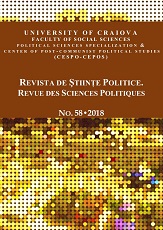Managing Ethnocultural Pluralism in Montenegro: Do We Need Interculturalism?
Managing Ethnocultural Pluralism in Montenegro: Do We Need Interculturalism?
Author(s): Danijela Vuković-ĆalasanSubject(s): Evaluation research, Sociology of Culture, Ethnic Minorities Studies
Published by: Editura Universitaria Craiova
Keywords: Multiculturalism; Montenegro; national minorities; interculturalism;
Summary/Abstract: Ex-Yugoslav countries are known as countries in which ethno-national identity was, or still is, traditionally dominant. Montenegro is no exception, as it belongs to the group of countries with high level of ethnocultural pluralism. Pluralism and multi-ethnic character are the result of the historical existence of national minorities and minority peoples on its territory. Therefore, national minorities are the dominant type of ethnocultural communities in Montenegro. It is reflected on the specificity of the requirements that these communities have for the state and on the character of multiculturalism model, which is applied in institutional, legal and political sense. The reaches of mechanisms and multiculturalism policy measures can be evaluated from the perspective of ethnonational communities, but also from the perspective of the society as a whole and its cohesion. In this sense, the importance of interculturalism is emphasized, as a kind of `supplement` to the multiculturalism policies, which is supposed to strengthen the interaction, exchange and contacts between the communities and to make `living with each other` possible, not `living next to each other`.
Journal: Revista de Științe Politice. Revue des Sciences Politiques
- Issue Year: 2018
- Issue No: 58
- Page Range: 128-140
- Page Count: 13
- Language: English

